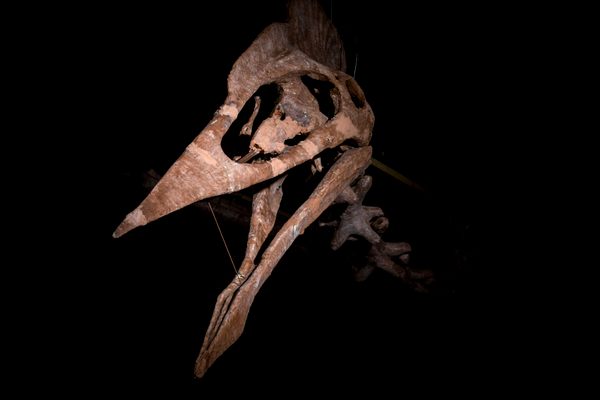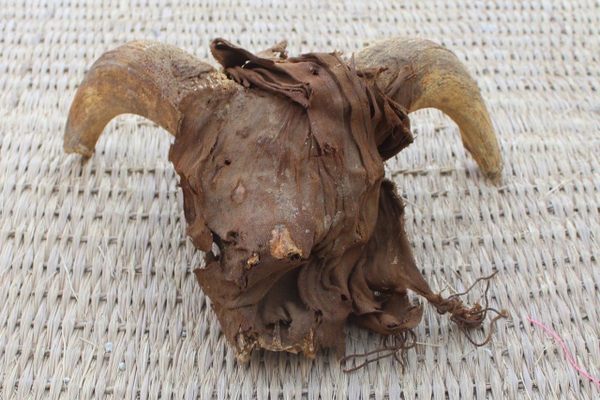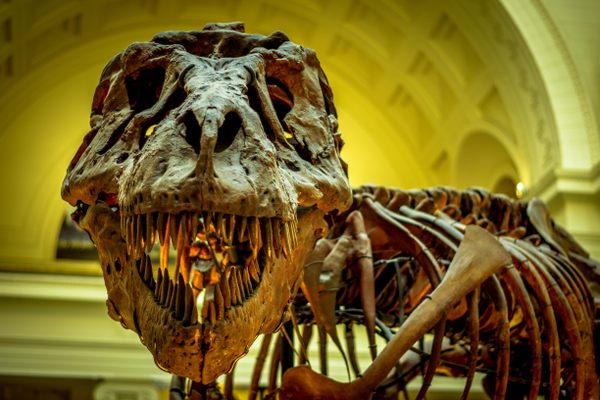FOUND: Blood Cells in a Dinosaur Bone

One of the bones (Photo: Laurent Mekul)
In a new paper, published in Nature Communications, a team of scientists from Imperial College London report that they looked carefully at a group of dinosaur fossils and found something that wasn’t supposed to be there—red blood cells and collagen fibers.
The chances that these sort of soft tissues would survive tens of millions of years were thought to be so low that it would be next to impossible to find these sort of cells. But the bones in which they were found were not even prime specimens: the Guardian describes them as “eight rather shabby fossils that had been dug up in Canada a century ago.” But when looking at samples of the bones—a claw, ankle bones, a toe bone—under electron microscopes, which allow analysis at the nanoscale, the scientists saw what looked like blood cells.
There are two easy reactions to this news. One: JURASSIC PARK IS COMING. Two: Everyone knows that DNA is too fragile to last for that long, so of course Jurassic Park is not real. But neither of these is quite correct.
Blood cells do not mean DNA, and this discovery does not herald the resurrection of dinosaurs. However, it has made scientists, at least momentarily, more willing to speculate that maybe, it might be possible that some dino DNA is out there somewhere. As one scientists not involved in the study told the BBC:
“…it is a great start, and an exciting paper, particularly in showing what happens when you really look at ancient bone and are not bound by the expectation that ‘nothing could possibly persist’. If you don’t look, you won’t find. But if you do, you never know.”
But this is the sort of news that many, many scientists will look at, evaluate and opine on. It’s exciting no matter what, but it’s too early to say what it really means.
Bonus find: a 1961 documentary featuring openly gay men
Lost: The next Fifty Shades of Grey manuscript
Every day, we highlight one newly lost or found object, curiosity or wonder. Discover something unusual or amazing? Tell us about it! Send your finds to [email protected].















Follow us on Twitter to get the latest on the world's hidden wonders.
Like us on Facebook to get the latest on the world's hidden wonders.
Follow us on Twitter Like us on Facebook